His Dark Materials season 3 review: a wondrous but inconsistent end to the fantasy HBO Max show
- Launching on Monday, December 5 on HBO (no UK release date set yet)
- Third and final season in the HBO-BBC adaptation
- Comprises eight episodes
- Two-episode weekly releases until December 26's series finale
- Based on Philip Pullman's iconic fantasy novel series
- Written by Jack Thorne
- Stars Dafne Keen, Amir Wilson, Ruth Wilson, and James McAvoy
Two years is a long time in the TV industry. Popular shows can find themselves replaced by others if the gap between seasons is big enough, thus undoing all their good work at building an established fanbase.
His Dark Materials season 3 falls into that category. The HBO Max show’s second season ended in December 2020 and, while the pandemic played a large role in season 3’s delayed release, viewers have had to wait a long time to find out how Lyra and Will’s story ends.
So, has the wait been worth it? Yes but, like its predecessors, His Dark Materials season 3 sporadically creaks under the weight of the source material it tries to adapt. It’s a largely faithful recreation of Philip Pullman’s beloved fantasy novel series, and captures the heart and soul of this compelling and deeply human story. However, inconsistencies in some areas prevent the series’ final season from giving this joint HBO-BBC TV adaptation a perfect send-off.
Dust-ing up on the state of play
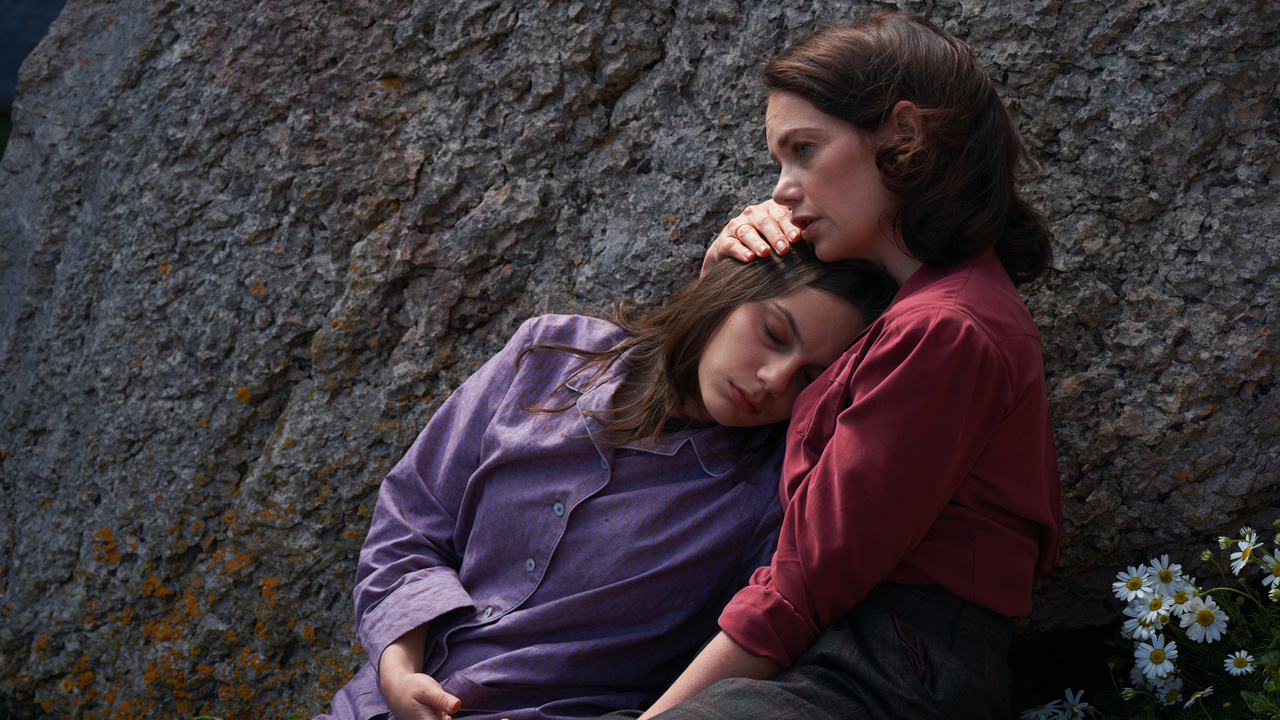
Based on The Amber Spyglass – the final book in Pullman’s trilogy – His Dark Materials season 3 opens immediately after the second season’s finale. Lyra (Dafne Keen), the supposed reincarnation of Eve, has been kidnapped by her mother Marisa Coulter (Ruth Wilson), and is being kept drugged up in a remote location far from prying eyes, including the autocratic Magisterium.
With Lyra’s distant father Lord Asriel (James McAvoy) absorbed with his great war against the Magisterium – and, by proxy, the kingdom of Heaven – it’s up to Will (Amir Wilson), bearer of the Subtle Knife, to rescue Lyra. Even if Will and Lyra are reunited, the pair can’t rest on their laurels. Lyra and Will, as well as Marisa, Asriel, and Doctor Mary Malone (Simone Kirby), have vital roles to play in not only the battles to come, but also the survival of the entire multiverse.
The initial problem His Dark Materials’ final chapter has is the aforementioned time that’s passed between the show’s second and third seasons. The latter doesn’t come equipped with a recap of its forebear – a small grievance, sure, but it has been a couple of years since the last episode aired. A brief refresher of the series’ main plot threads wouldn’t have gone amiss to help re-immerse us in this fantastical world. Without one, viewers might find it helpful to rewatch the season 2 finale to jog their memories.
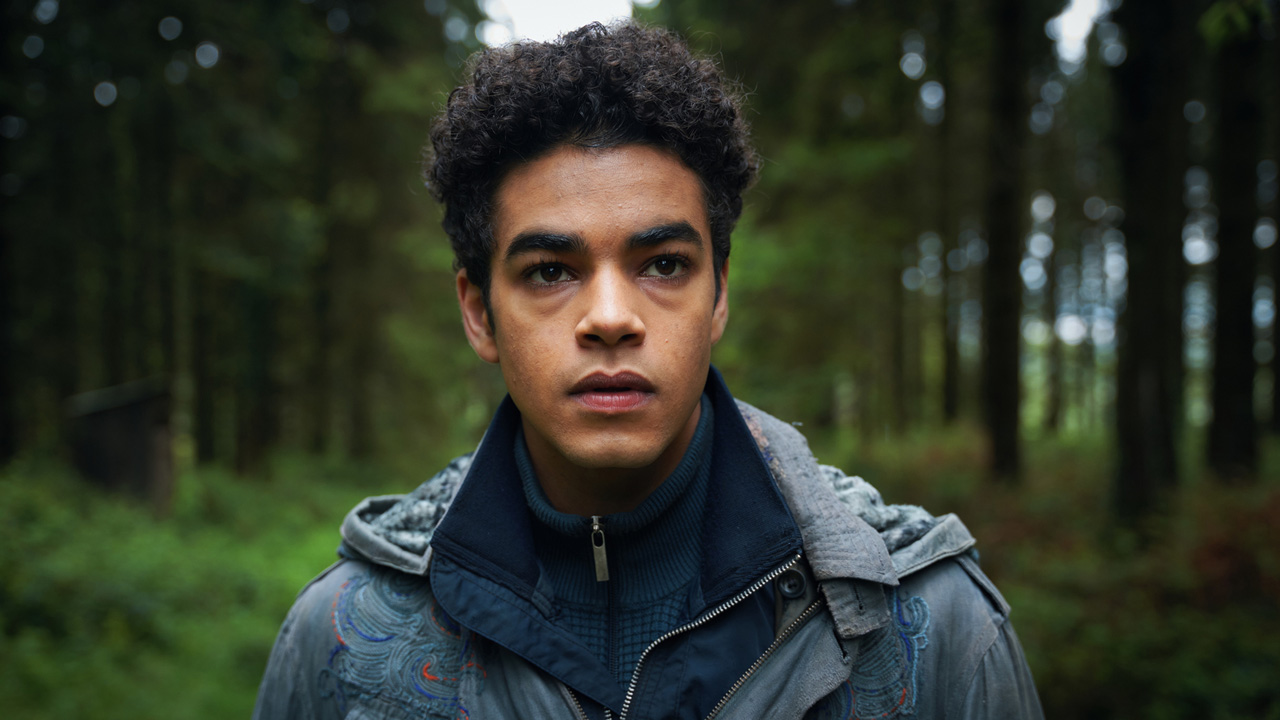
This isn’t the only story-based complaint that can be leveled at His Dark Materials’ third season. It’s also a slow burn, particularly in its early episodes, with its leisurely pacing seemingly allowing viewers to settle back into proceedings after two years away.
That sedentary build-up to more thrilling moments, though, doesn’t aid its narrative flow.
Will’s search for Lyra is a classic example of season 3’s sluggish start. It’s a storyline that works well in The Amber Spyglass, with Pullman’s detailed descriptions helping readers to imagine Will’s journey as it plays out on the page. However, it doesn’t translate as effectively in a live-action format. Will’s search for Lyra is unnecessarily dragged out across season 3’s first two episodes and subsequently lacks the tension required to feel suitably suspenseful. Other storylines, such as Doctor Malone’s adventures before she arrives in the Mulefa’s homeworld – more on this later – and Marisa’s abduction of Lyra, suffer from similar hiccups, making season 3’s initial entries feel ponderously paced and slightly disjointed.
Angels and daemons
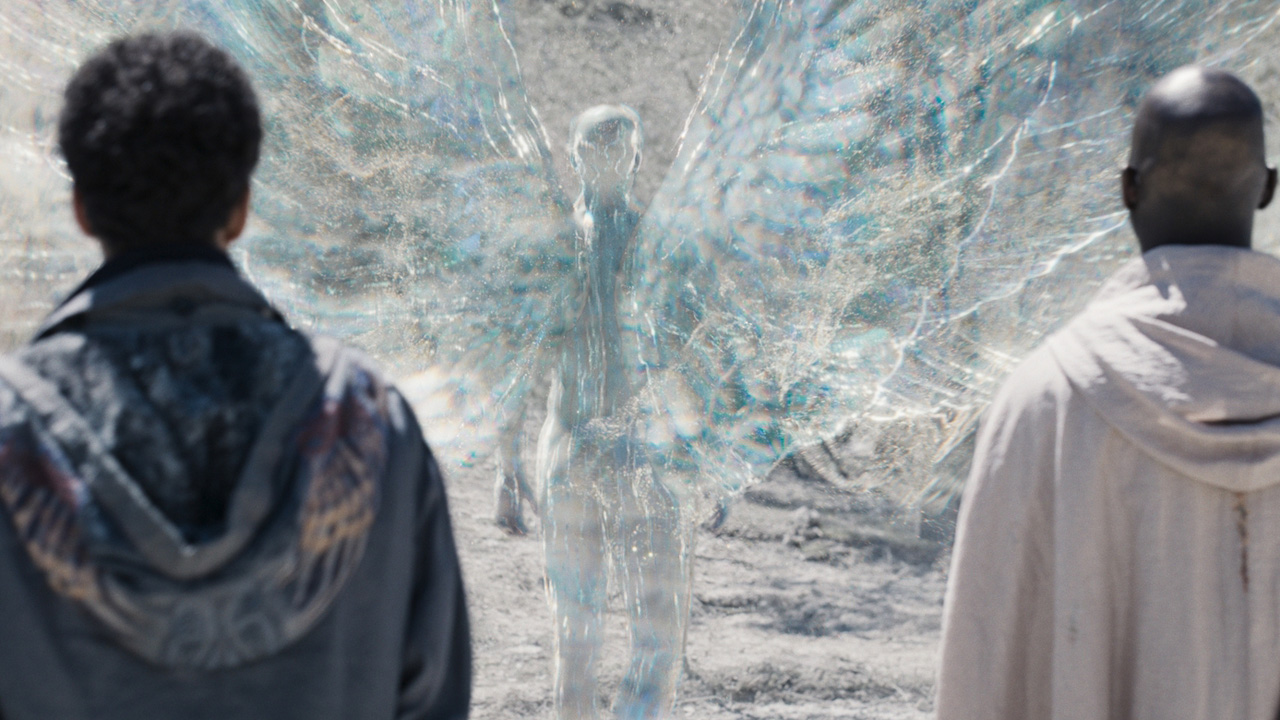
Once His Dark Materials season 3 gets over its narrative bumps and builds up a head of steam, it becomes a pulsating watch. That’s especially true when storylines converge, such as Will, the Magisterium, and Marisa’s subplots intersecting as they look to rescue, murder, and protect Lyra, respectively.
In fact, season 3’s thrilling and engrossing appeal is largely down to the complex relationships between the show’s characters and the fascinating deep dives it takes into their psyches. Like the novels, you never truly know who to root for, which is often a sign of great characterization and individualistic evolution.
Season 3’s initial entries feel ponderously paced and slightly disjointed
Reunions between Asriel and Marisa make for particularly compelling viewing. The pair’s dynamic is akin to two chess masters meticulously – and occasionally barbarically – moving pieces about the proverbial board, regardless of the cost to themselves or others. Marisa’s interactions with Father President McPhail (Will Keen) are equally devilish and wicked, the latter a cruel and creepy presence throughout who’ll stop at nothing to prevent the prophecy about Lyra from coming true.
It’s a goal that, after two seasons of being fraught allies, chillingly pits McPhail against Marisa to riveting effect. It’s a relationship in sharp contrast to the tempestuous one Marisa shares with Asriel. McPhail’s dogged pursuit of Lyra juxtaposes Asriel’s flippant disregard for his own child in intriguing fashion, and the callousness and arrogance that Keen and McAvoy bring to their respective roles – towards Lyra and those around them – make for uncomfortable but captivating viewing.
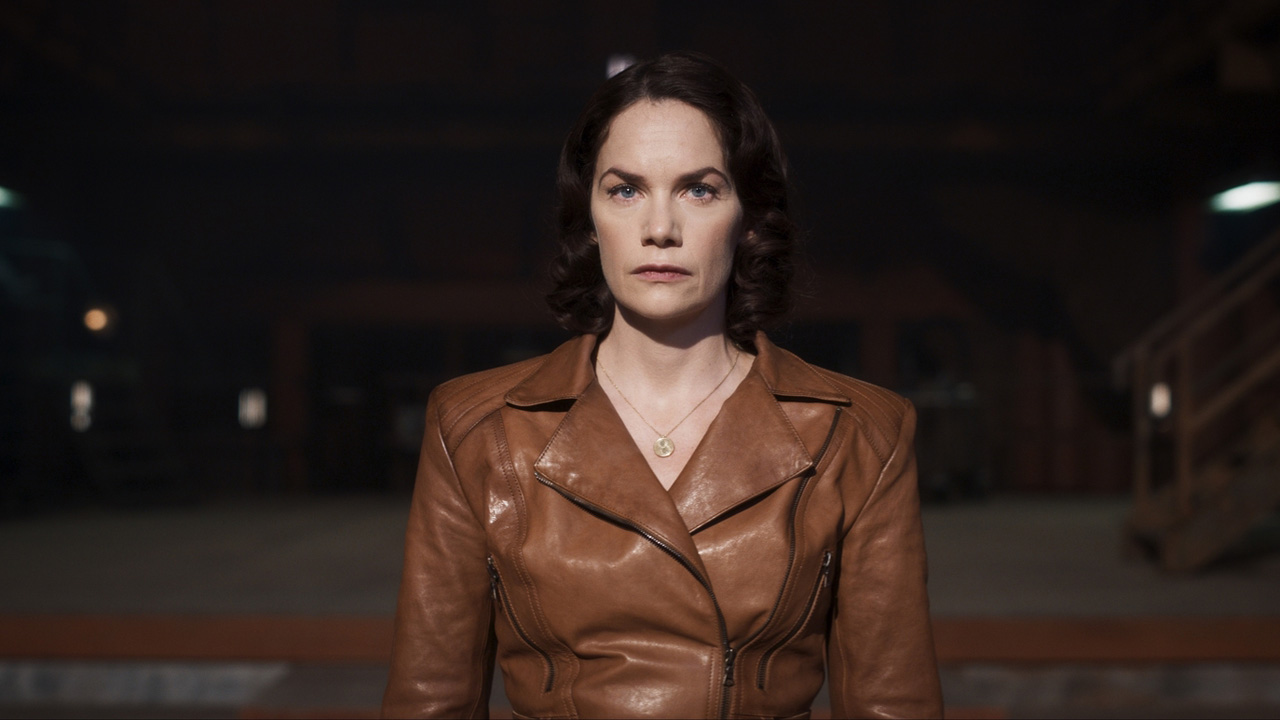
That said, the duo’s performance wouldn’t be as enthralling without Wilson’s powerful performance as Marisa Coulter. Wilson delivers a stunning portrayal of His Dark Material’s most complicated character, running the emotional gauntlet of an individual pulled in multiple directions. Marisa is not only a mother who’s unable to control the love she feels for Lyra, but also a strong and independent character who’s powerless to pacify the guilt she feels over the evil she’s committed. That Wilson commands each scene she’s in and elevates the performances around her is evidence of her importance to His Dark Materials’ success. This may be Lyra’s story, but Wilson’s Marisa is the real star of the show.
The final bout between Asriel’s army and Heaven feels a tad underwhelming
In fact, Lyra and Will’s partnership is arguably the weakest of those among the third season’s primary cast. Periodically, the drama between them feels superfluously forced, while the chemistry between Keen and Wilson is occasionally incongruent. Part of that is down to the irksome nature of how certain scenes have been edited – the jump cuts between some sequences are off-putting – and the uneven writing, which is intermittently sloppy. That’s a pity because, in later episodes, Lyra and Will share a number of beautifully intimate scenes that don’t feel as labored and showcase the natural rapport between the two young actors.
Even the relationship between Lyra and Pan (Lyra’s daemon, aka a physical embodiment of her soul) is slightly relegated to the sidelines. In some ways, fans of the novels won’t be surprised by that – there’s a moment in the books where, without spoiling much, Lyra and Pan are separated. It’s an absolutely heartbreaking moment perfectly adapted for the show; a scene as emotionally scarring and impactful as they come. Still, as the emotional fulcrum of the whole story, seeing Lyra and Pan’s dynamic play second fiddle to other relationships in season 3 might dissatisfy some viewers.
Novel deviations

Like the seasons preceding it, His Dark Materials’ third installment doesn’t stray far from the book it’s based on. It retains all the main story beats from The Amber Spyglass, which won’t come as a major shock to those who have read the novels. That includes the preservation of the fantasy book series’ LGBTQ-plus representation, such as the same-sex relationship between exiled angels Baruch and Balthamos.
Of the storylines and locations adapted from page to screen, it’s the Mulefa and their homeworld, plus the Land of the Dead, that are respectively awe-inspiring and dread-inducing.
Seeing the Mulefa realized in live-action is a wonderfully satisfying experience. It’s a delightful moment amid the somber and drama-led plot threads elsewhere, and watching them interact with Kirby’s Malone – and other characters later on – gives season 3 a real tangible feel. Sure, it takes a while for Doctor Malone to actually get to the Mulefa’s homeworld but, once she’s there, the show does a good job of adapting this storyline’s main points without including additional fluff from the books – something that can’t be said for other parts of His Dark Materials’ final season.
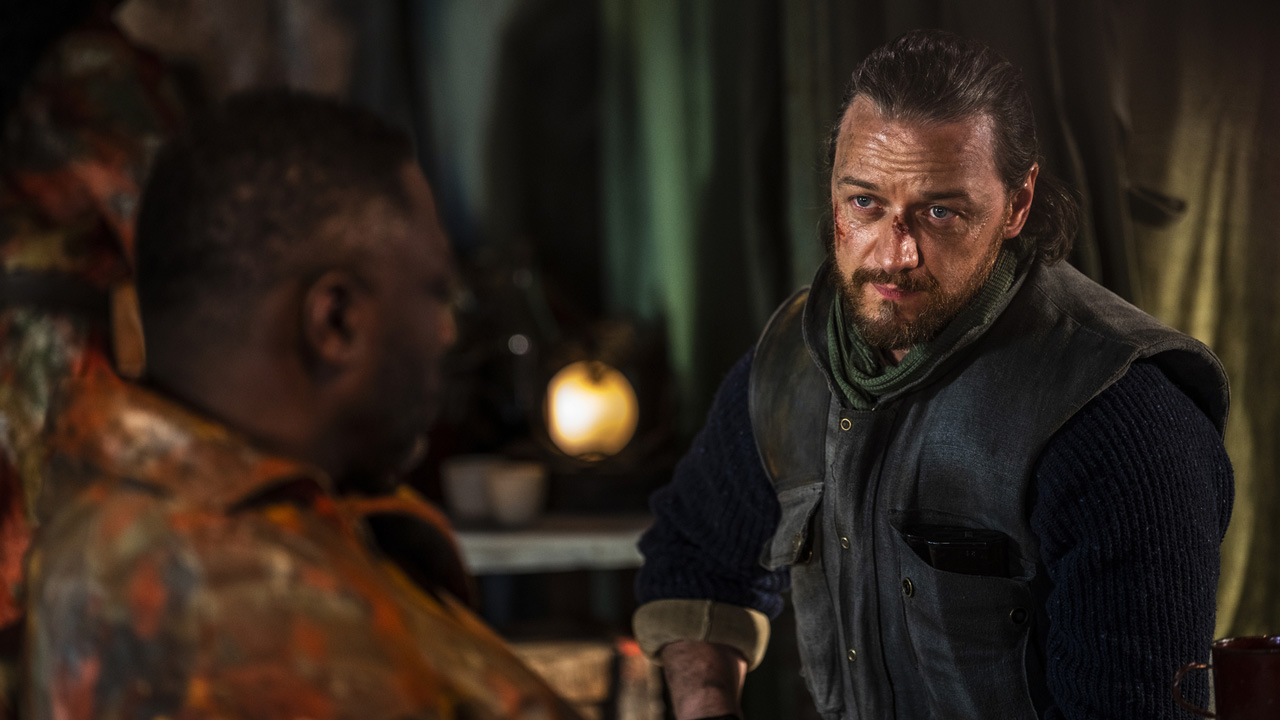
On the flip side, the Land of the Dead (and its fear-inducing Harpies) is spookily captured in great detail. There’s a nuanced zombie/horror stylization to its make-up, and the decision to build the walls of this realm out of the possessions of its dead inhabitants certainly lends to its eerie, sinister atmosphere.
There are instances, though, where character arcs and subplots vary from those in Pullman’s source material.
Some are somewhat insignificant changes, such as Ogwene’s title being changed from king to army commander, which won’t really annoy longtime fans of Pullman’s works. Others, though, are likely to vex His Dark Materials fanatics, including character deaths that don’t happen in the novels and the absence of key individuals from the series’ climactic battle between Asriel’s forces and the kingdom of Heaven.
Speaking of action, season 3 is light on fight sequences. Yes, His Dark Materials is a franchise that favors drama over battles, but it’s still disappointing that a few of the physical conflicts in the books are removed entirely from the show’s final season. Even the final bout between Asriel’s army and Heaven feels a tad underwhelming, even if there are instances when it’s truly engrossing.
Our verdict
His Dark Materials season 3 is a fairly enjoyable if relatively erratic ending to the HBO Max series. It’s grander in scope than its predecessors and the stakes are certainly higher for the characters inhabiting its story, which make it feel slightly more epic than the seasons before it.
Still, it’s an uneven finale that can’t shake off some obvious problems. Its lack of emotional punch at vital moments, a dearth in the action department, divergence from some important source material aspects, and the varying quality of its writing and editing make for a too-often frustrating watch.
His Dark Materials is at its best when it adapts the franchise’s plot points and character arcs beat-for-beat, and it shines in its quieter moments. Whether that’s enough for the show to be considered a success is up for debate. If HBO and the BBC have aspirations of adapting any of His Dark Materials’ spin-off novels, such as Lyra’s Oxford or even The Book of Dust trilogy, it’ll need audiences to support this season and demand more adventures with Lyra, Pan, and company. If His Dark Materials season 3's up-and-down nature is anything to go by, though, those fantastical wishes might not come true.
His Dark Materials season 3 launches on HBO Max with a two-episode premiere on Monday, December 5. A UK release date is yet to be announced.
0 comments:
Post a Comment